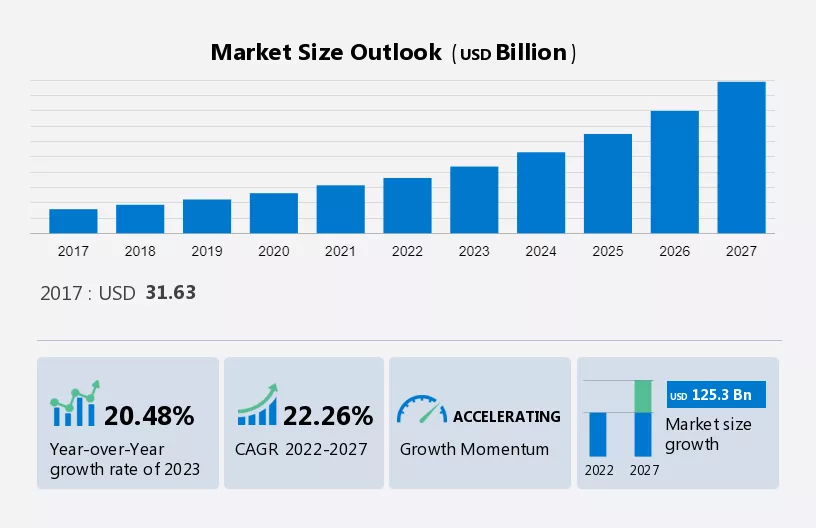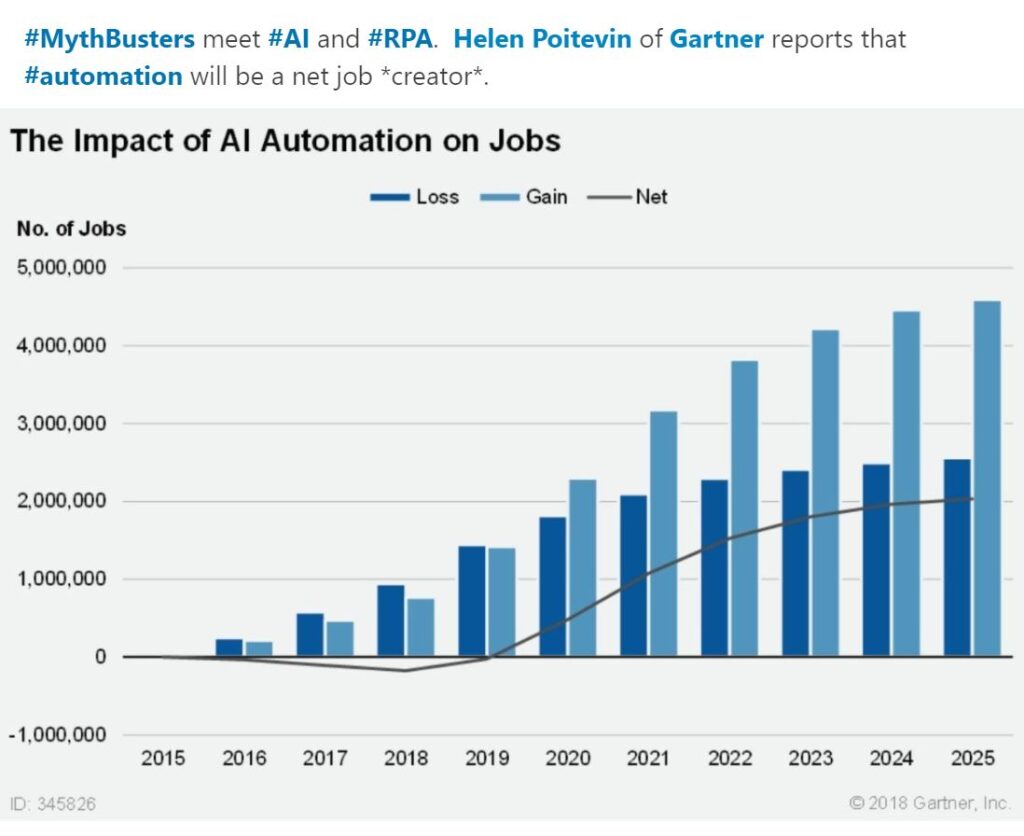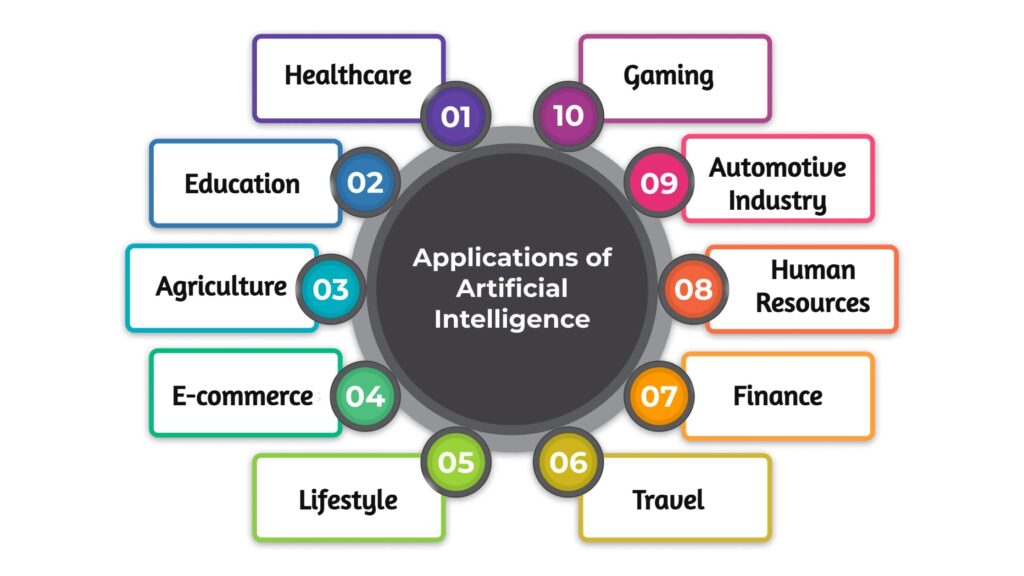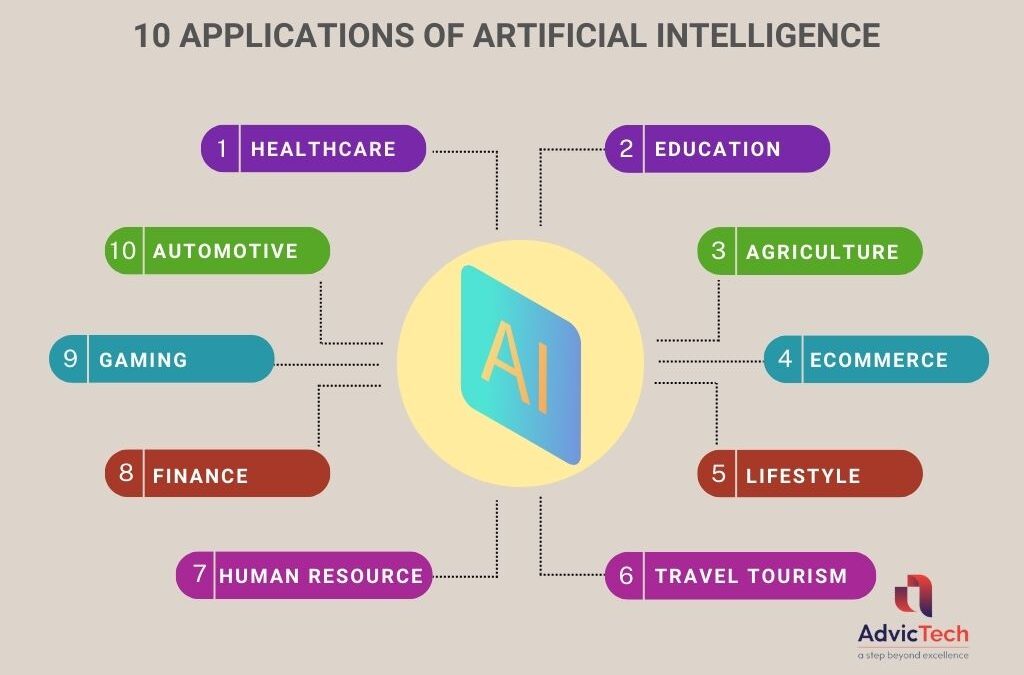What is Artificial Intelligence?
Artificial Intelligence refers to the replication of human cognitive abilities in machines that are programmed to think and mimic human mental processes. In this field, machines are designed to perform tasks that typically require human cognitive abilities, such as image recognition, voice understanding, and decision-making. The uses of Artificial Intelligence span a wide range of applications, impacting various sectors including healthcare, finance, education, and entertainment.
AI isn’t a monolithic field, but rather a collection of specialized areas. Some of the key areas include training machines to learn on their own machine learning, allowing them to understand human language, giving them the ability to “see” the world, and creating intelligent machines along with systems packed with human expertise. Machine learning, a core competency within AI, empowers algorithms to learn from data, enabling them to make predictions and choices without needing explicit programming. Artificial Intelligence Application significantly enhances user experience by providing personalized recommendations, streamlining processes, and improving overall efficiency.
AI Facts and Figures

(Source :-https://www.technavio.com/report/artificial-intelligence-ai-market-industry-analysis )
AI Market on the Rise: The global AI market size is expected to grow significantly in the coming years. According to [source: exploding topics ai statistics ON explodingtopics.com], the market is valued at over $196 billion in 2024 and is projected to reach over $1 trillion by 2028 [source: semrush ai statistics ON semrush.com]. This rapid growth indicates the increasing adoption of AI across various industries.

(Source :- https://www.horsesforsources.com/storage/app/media/Phil%20MARCH%20APRIL%202018/job%20creator.jpg )
AI Job Creation: While automation through AI might raise concerns about job displacement, it’s also creating new opportunities. A study by [source: hostinger ai in business ON Hostinger hostinger.in] suggests that AI is expected to create 133 million new jobs globally by 2030. These jobs will likely be in fields like AI development, data analysis, and cybersecurity, requiring new skillsets to work alongside AI technologies.
Applications of Artificial Intelligence

- Healthcare: AI is transforming diagnostics, enabling more accurate disease detection through advanced pattern recognition and paving the way for personalized treatment plans. This integration of pattern recognition and medical intelligence empowers healthcare professionals to make informed decisions based on comprehensive data analysis and insights generated by AI systems.
- Education: Students are benefiting from AI-powered personalized learning experiences and tailored content creation, which enhance personalized learning.
- Agriculture: Precision farming powered by AI is optimizing practices and boosting yields. By leveraging AI technologies, farmers can gain valuable insights into crop health, soil conditions, and weather patterns, leading to more informed decisions and ultimately improving outcomes in agricultural production.
- E-commerce: AI personalizes recommendations and utilizes chatbots to enhance the customer experience, providing personalized shopping experiences tailored to individual preferences through advanced behavioural analysis. This integration of AI technologies not only streamlines the shopping process but also anticipates customer needs, fostering deeper engagement and satisfaction.
- Lifestyle: From virtual assistants that manage our daily tasks to health trackers that monitor our well-being, AI is seamlessly integrating into our everyday lives.
- Travel: AI optimizes routes, offering personalized travel suggestions and making navigation a breeze.
- Finance: The financial sector leverages AI for fraud detection and bolsters cybersecurity measures.
- Human Resources: AI streamlines candidate screening and fosters employee engagement within companies.
- Automotive Industry: The future of transportation is here with AI-powered autonomous vehicles and predictive maintenance.
- Gaming: AI is elevating gaming experiences through intelligent NPCs and difficulty levels that adapt to player skill.
Applications of Artificial Intelligence in Healthcare
Drug Discovery and Development: The fight against disease just got a powerful ally. AI accelerates drug discovery by analyzing vast amounts of biological data to identify promising drug targets and predict how molecules might interact. Machine learning models play a crucial role by rapidly screening potential drug candidates, optimizing their effectiveness, and ultimately expediting the development of new treatments for a wide range of diseases.
Personalized Treatment: No more one-size-fits-all medicine! AI analyses patient data, including genetic information, medical history, and treatment responses, utilizing facial recognition and pattern recognition technologies to create personalized treatment plans. This data-driven approach, enriched with medical intelligence, not only optimizes treatment but also enhances user experience by tailoring therapies and medications to each individual. Healthcare providers can now leverage advanced AI systems to deliver precision medicine, maximizing effectiveness while minimizing side effects and ensuring a more personalized and satisfactory patient journey.
Medical Imaging Analysis: AI algorithms are becoming a radiologist’s best friend, leveraging advanced pattern recognition and behavioural analysis to enhance the user experience and improve diagnostic accuracy. By analysing medical images like X-rays, MRIs, and CT scans, these algorithms help detect abnormalities with unprecedented precision. Deep learning models take this a step further by identifying subtle patterns indicative of diseases like cancer, fractures, or neurological disorders, enabling earlier detection and potentially better patient outcomes. This integration of medical intelligence and behavioural analysis not only streamlines the diagnostic process but also ensures that patients receive personalized and efficient care, ultimately enhancing the overall healthcare experience.
Applications Of Artificial Intelligence in Education
Personalized Learning: AI analyzes student learning styles, preferences, and performance to create customized experiences. Imagine adaptive learning platforms that adjust the difficulty, content, and delivery of materials based on your individual needs, keeping you engaged and maximizing understanding. These personalized learning experiences, enabled by the uses of Artificial Intelligence, revolutionize education by catering to each student’s unique strengths and weaknesses, ultimately fostering deeper comprehension and academic success.
Student Support and Engagement: AI-driven virtual assistants become your academic companions, offering guidance, career counseling, and even mental health support. Sentiment analysis and predictive models go a step further, helping educators identify students who might be disengaged or struggling academically, enabling proactive intervention and support services.
Administrative Support: AI automates tedious tasks like grading, scheduling, and course management, freeing up valuable time for teachers to focus on what matters most – personalized interactions with students. Chatbots powered by AI can handle routine inquiries, registrations, and administrative support, streamlining processes and improving responsiveness within institutions.
Applications of Artificial Intelligence in Agriculture
Autonomous Farming Equipment: Move over tractors, here come autonomous farming machines! AI-enabled autonomous vehicles and robots are transforming agriculture by performing tasks like planting, harvesting, and weeding with high precision and tireless efficiency. These technologies not only reduce labor costs and boost productivity but also enable 24/7 operation, a game-changer for large-scale farms.
Crop Yield Analysis: AI analyzes data from satellites, drones, and on-ground sensors to keep a watchful eye on crop health, soil moisture, and weather patterns. This data allows for precise management of irrigation, fertilization, and pesticide application, optimizing resource use, minimizing environmental impact, and ultimately maximizing crop yields.
Supply Chain Optimization: AI ensures a smooth journey for your fruits and vegetables. It optimizes logistics and supply chain management by predicting demand, designing efficient transportation routes, and managing inventory levels. Smart warehouses equipped with AI-powered inventory management systems ensure timely delivery of agricultural products while minimizing waste and loss.
Applications Of Artificial Intelligence in E-Commerce
Visual Search: AI makes searching for products a breeze with visual search capabilities. Simply upload an image or use your phone’s camera to find similar or identical items within the store’s inventory. This technology streamlines product discovery, especially for those times when you can’t quite describe what you’re looking for with text.
Chatbots and Virtual Assistants: Need help finding a product or have a question? AI-powered chatbots and voice assistants are at your service, offering round-the-clock customer support and personalized shopping experiences. These virtual helpers utilize AI to understand your inquiries, assist you in finding the perfect item through personalized recommendations, and even troubleshoot any issues you might encounter. The uses of Artificial Intelligence in customer service extend beyond just chatbots, encompassing voice assistance to cater to diverse customer preferences and enhance overall user experience
Fraud Detection and Prevention: Security is paramount when shopping online. AI-powered fraud detection systems analyze transaction data, user behavior, and patterns linked to fraudulent activities. Machine learning algorithms constantly learn and adapt, protecting e-commerce platforms and your financial information from ever-evolving fraud attempts.
Applications of Artificial Intelligence in Lifestyle
Health and Fitness Tracking: Wearable devices equipped with AI algorithms become your personalized fitness coach. They track your physical activity, sleep patterns, and vital signs, providing valuable insights into your health and fitness level. AI analyzes this data to offer personalized recommendations, track progress towards your goals, and keep you motivated to maintain a healthy lifestyle.
Smart Home Automation: Imagine a home that anticipates your needs! AI-driven smart home systems, equipped with voice assistance, automate tedious tasks, optimize energy usage, and enhance security. Through advanced Artificial Intelligence applications, smart thermostats, lights, and locks can be controlled remotely or programmed to adjust automatically based on your preferences and daily routines, providing unparalleled convenience and peace of mind.
Virtual Assistants: AI-powered virtual assistants like Siri, Alexa, and Google Assistant are like having a personal helper on call 24/7. Manage daily tasks, set reminders, or access information hands-free using simple voice commands. These intelligent assistants can even control your smart home devices, adjusting settings and automating routines based on your preferences, making daily life a breeze.
Applications of Artificial Intelligence in Travel & Navigation
Personalized Travel Recommendations: Planning a trip? AI can be your travel guru. By analyzing your preferences, past travel behavior, and even demographic data, AI suggests personalized destinations, accommodations, and activities that align with your interests. Imagine recommendation engines tailoring suggestions based on your budget, hobbies, travel history, and even social connections, making trip planning a breeze.
Language Translation: AI bridges the language gap! AI-powered translation tools provide real-time translation, making communication a breeze when you’re abroad. These translation apps use machine learning to continuously improve accuracy, ensuring you can interact with locals and fully immerse yourself in the culture.
Predictive Maintenance for Transportation: AI ensures a smoother ride, by analyzing sensor data from vehicles, airplanes, and infrastructure. Predictive maintenance systems use AI to anticipate maintenance needs, identify potential equipment failures before they happen, and schedule repairs proactively. This translates to safer and more reliable transportation for airlines, railways, and car rental companies, minimizing delays, downtime, and maintenance costs.
Applications of Artificial Intelligence in Finance & Data Security
Fraud Detection and Prevention: Financial institutions have a watchful eye thanks to AI. AI algorithms analyze massive amounts of transaction data in real-time to detect sneaky activities like unauthorized transactions, identity theft, and account takeovers. Machine learning models constantly learn and adapt, becoming more adept at identifying new fraud patterns and emerging threats, keeping your finances secure.
Customer Service and Personalization: Need help managing your finances? AI-powered chatbots and virtual assistants are here for you. These digital assistants can answer your questions, handle account inquiries, and even offer personalized financial advice using natural language processing. Imagine getting tailored product recommendations or resolving account issues with a virtual assistant, all designed to enhance customer satisfaction and loyalty.
Anti-Money Laundering Compliance: Anti-money laundering compliance becomes more efficient with AI. AI automates tasks like suspicious activity detection, transaction monitoring, and regulatory reporting. Machine learning algorithms can identify patterns that might indicate money laundering or terrorist financing, helping financial institutions comply with regulations and avoid legal or reputational risks.
Applications of Artificial Intelligence in Human Resource
Candidate Screening and Recruitment: Resumes pile no more! AI automates the initial screening of job applications, analyzing resumes, cover letters, and applicant data to identify top talent. Machine learning algorithms become your unbiased matchmaker, pairing candidate profiles with job requirements, assessing skills, and predicting suitability for specific roles. This streamlines the recruitment process and helps reduce bias in hiring decisions.
Training and Development: One size doesn’t fit all, especially in training! AI-powered Learning Management Systems personalize training programs based on individual needs. Adaptive learning algorithms identify skill gaps, recommend relevant courses, and deliver customized learning experiences to improve employee skills, knowledge, and overall job satisfaction.
Workforce Planning and Optimization: AI helps level the playing field. Bias detection algorithms analyze HR data and decision-making processes to identify and mitigate unconscious bias in hiring, promotion, and talent management. This fosters diversity, equity, and inclusion within the organization.
Applications of Artificial Intelligence in Automobiles
Autonomous Driving: Imagine cars that drive themselves! AI is making self-driving vehicles a reality. These vehicles use a combination of machine learning and sensors like cameras, lidar, radar, and GPS to perceive their surroundings, interpret traffic conditions, and navigate roads safely. Advanced algorithms can even detect obstacles and predict pedestrian behavior, paving the way for a future with fewer accidents.
Smart Traffic Management: AI can untangle traffic jams! Smart traffic management systems analyze traffic flow data, historical patterns, and real-time information to optimize traffic signal timing. This dynamic approach helps manage congestion, improve overall traffic efficiency, and reduce travel times, fuel consumption, and emissions for everyone on the road.
Driver Assistance Systems: Driver assistance systems powered by AI act as your guardian on the road. Features like adaptive cruise control, lane departure warning, and collision avoidance use sensors and cameras to monitor your surroundings, provide real-time alerts, and even intervene to prevent accidents when necessary. These intelligent systems give you peace of mind and extra support behind the wheel.
Applications of Artificial Intelligence in Gaming
Realistic Graphics and Animation: AI is pushing the boundaries of gaming visuals. Advanced algorithms like neural networks and deep learning are used to create high-quality graphics, animations, and special effects. Imagine games with lifelike textures, realistic character movements, and stunning environments, blurring the line between reality and the game world. The uses of Artificial Intelligence in gaming extend beyond visual enhancements, encompassing areas such as procedural content generation, adaptive difficulty adjustment, and player behaviour prediction, leading to more immersive and engaging gaming experiences.
Intelligent Opponents: Imagine in-game characters that react and adapt like real people! AI-powered NPCs exhibit human-like behavior, decision-making, and can even adjust their strategies based on your actions. Machine learning lets them learn from player interactions, anticipate your moves, and provide dynamic challenges, making the game world feel more immersive and alive. This integration of machine display intelligence and Artificial Intelligence applications revolutionizes gaming experiences, offering players unprecedented levels of realism and engagement.
NLP for In-Game Communication: Chatbots powered by AI let you have natural conversations with characters! These in-game assistants use natural language processing to understand your questions, commands, and even casual talk. This allows for richer interactions with the game world and deeper immersion in the story.
Conclusion
In conclusion, Artificial Intelligence is a versatile technology with wide-ranging applications across industries, revolutionizing sectors such as healthcare, education, agriculture, e-commerce, lifestyle, travel, finance, human resources, automobiles, and gaming. From enhancing medical diagnoses to personalizing learning experiences, optimizing farming practices to facilitating online shopping, and improving navigation to ensuring data security, AI is driving innovation and efficiency. With its ability to automate tasks, provide personalized insights, and improve decision-making processes, AI is reshaping industries and enriching human experiences. As AI continues to evolve, its impact on society will grow, offering new opportunities for growth, efficiency, and advancement while also raising ethical and societal considerations that require careful navigation.


